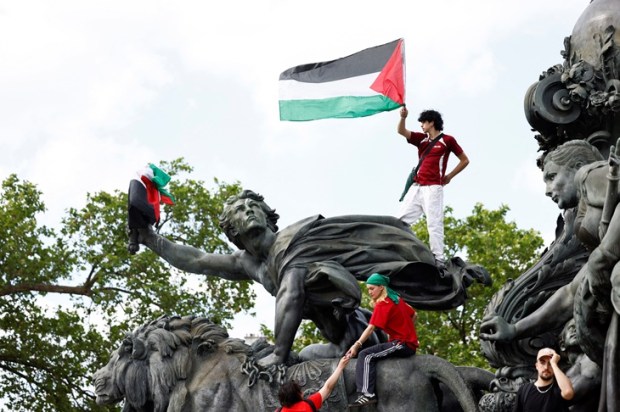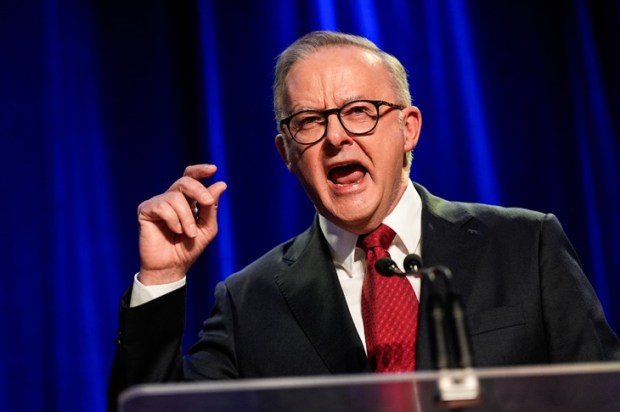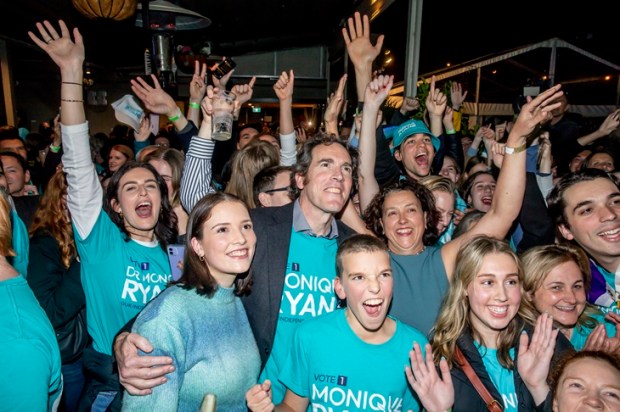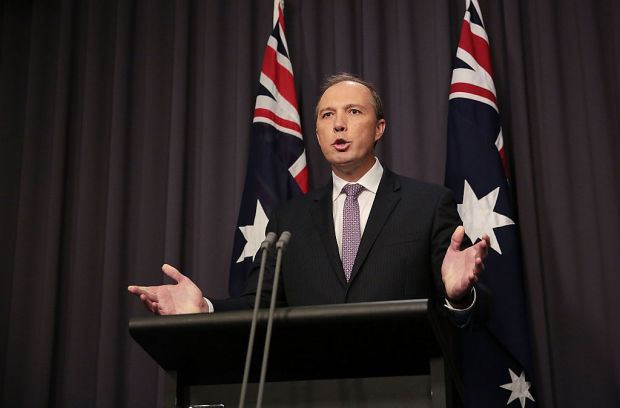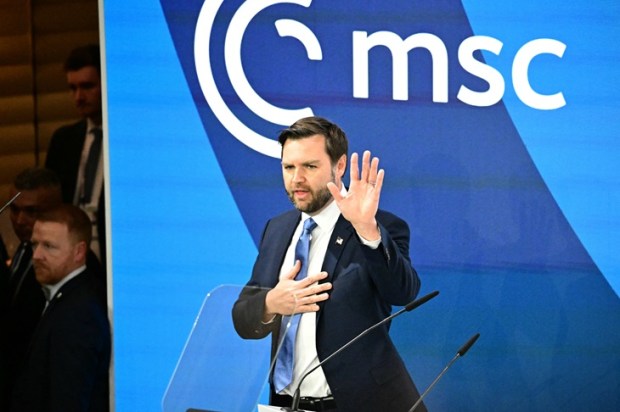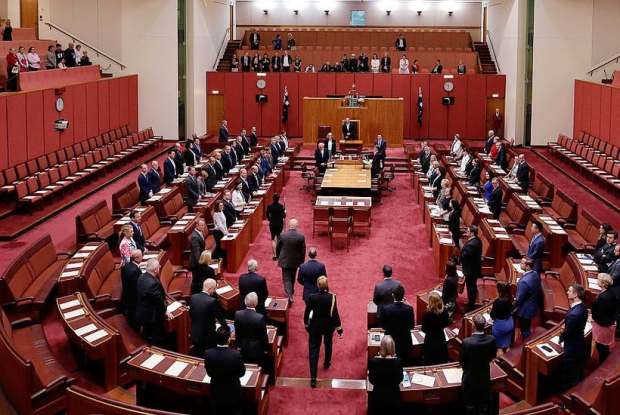The Voice has been defeated, but the victory of the ‘No’ case could be described as a ‘Pyrrhic’ victory because closing the ‘Gap’ remains unfinished business.
During the final week of electioneering, the ‘Yes’ camp made a determined effort to convince undecided voters of the need to entrench this bureaucratic Voice behemoth in the Constitution. The Opposition made a monumental faux pas when the Opposition Leader, Peter Dutton, promised to hold a second referendum on the Voice that, however, would not be enshrined in the Constitution. This ill-considered and badly timed comment had the effect of destroying the most convincing argument of the ‘No’ campaign, namely that the Voice is a racially divisive construct. This enabled Chris Kenny, in his last Sky News Australia news program before the vote, to claim that the Opposition itself does not think that the Voice is divisive because, if it were divisive, the Opposition would not have promised to hold its own referendum.
The Opposition’s fascination with a Voice-like organisation is a worrying development. First, any Voice referendum inevitably divides Australia along racial lines, leaving losers in a referendum desperately unhappy, and the winners temporarily elated. Of course, this is also the result of Albanese’s Voice referendum: rather than unifying the country, it has divided the country, with 39.41 per cent unhappy and 60.59 per cent satisfied with the result. Second, and most importantly, if a Voice referendum were to be held in the future, it would constitute a frontal attack on the principle of political equality. Yet, this is the only principle that can unify the country and secure its future prosperity and, therefore, our political class should embrace and promote this principle.
It would be an exaggeration to describe the divisive Voice referendum endured by Australians during the long campaign for the entrenchment of a racialist body in the Constitution as Australia’s nadir. But Australia has certainly avoided – at least for now – becoming a racist country. Indeed, if the ‘Yes’ vote had prevailed, a potentially divisive and conflict-ridden organisation would have been permanently enshrined in the Constitution, giving some Australians a privileged, exalted position in this country. Indeed, some people, merely on the basis of race – a characteristic over which people have no control – would have been entitled to special treatment in the governance of Australia, thereby making a mockery of the equality embedded in Australia’s DNA. It would have cemented, as part of our constitutional structure, a situation where group rights trump a person’s individual rights.
In the end, the magnificent campaign run by the ‘No’ camp, especially by the Opposition Spokesperson for Indigenous Affairs, Jacinta Price, and the coherent message communicated during the campaign, averted a tragic outcome that would have involved the allocation of special rights to members of preferred groups. Indeed, if the ‘Yes’ vote had prevailed, there would have been no reconciliation. Instead, it is fair to suggest that there would have been incessant demands for reparations, land rights, treaties, truth-telling commissions, and more. A successful ‘Yes’ result would also have overturned the noble aspirations and achievements of the 1967 referendum, which is credited with the creation of a ‘colour-blind’ society.
Every person alive today is the result of deeds and misdeeds of the past. Australia’s task is to learn from the past and get on with the job of making a better future for themselves and those who follow.
Hopefully, the ‘No’ victory will put an end to the grovelling, obsequious, prelude that speakers recite, paying fake tribute to past, present and emerging tribal ‘elders’, and how they cared for this country. But these are nauseating recitations. For example, it was disgusting to have to listen at the Supercup Soccer Final, played on Saturday, October 8, to a meaningless welcome to ‘our Aboriginal lands, upon which our ancestors have walked for thousands of years’.
It would be too much to expect that the Aboriginal flag will no longer be flown beside the one under which Australians fought and died in defending a free society that is rapidly becoming unfree. Geoff McDonald described in 1982 in his book Red over Black how, during the Cold War, the KGB nurtured the Aboriginal victimisation ‘industry’. The Aboriginal flag which symbolises division, may thus be a legacy of this foreign intervention in our sovereign nation.
So, while the defeat of the ‘Yes’ campaign is pleasing, it is not something that should be celebrated wildly. Indeed, there is still the fact that in remote Indigenous communities, there is a need for solid societal support to close the ‘Gap’.
The only result that would be worthy of celebration would have been a resounding commitment, by our political leaders, to the implementation of the principle of political equality, where all people, regardless of race, are treated equally, and any demonstrable problems are sought to be remedied by targeted assistance, but especially by empowering all people to look after themselves, regardless of race or ethnicity.
This wasteful referendum must be exposed as a project that has wasted so much time, cost, and energy in promoting a race-based power grab by a bunch of ingrates who should pay back the benefits they have and are receiving from the over-generous welfare system, including sit-down money and limitless handouts.
It is thus important not to be euphoric about the defeat of the ‘Yes’ case because it is a Pyrrhic victory. This is because the relentless pressure for special rights for Indigenous Australians will undoubtedly continue and may even accelerate. The architects of this disastrous bureaucratic behemoth, which the Voice undoubtedly would have been, may fantasise about the need for an intifada but, in any case, the activists will continue to clamour for constitutional recognition and ever grander benefits.
Unfortunately, the Voice campaign negatively impacted Australians’ free speech rights. There is always a danger, especially prominent in our time, that government critics would be described as bigoted troglodytes if they were to question the work of the racialist bureaucracy in its paternalistic treatment of Australia’s Indigenous population. In Australia, the ‘Voice’ debate has revealed that Australia, for too long now, has adopted laws that have progressively chipped away the free speech rights of Australians. While each restriction may be recognised as a reasonable, even defensible limitation, the aggregated limitations significantly and harmfully affect the rights of those Australians who still believe in the power of free speech and its importance for the maintenance of a vibrant and prosperous society. After all, in the context of Australia’s race relations, free speech is only a cry for the effective implementation of equal opportunity and the removal of all barriers that may have been placed in the path of a person’s legitimate ambitions.
The ‘Voice’ campaign is germane to a better understanding and appreciation of Australia – a reminder that government policies seeking to classify people on the basis of race are pernicious endeavours, and an affront to human dignity. Racial characteristics should not be considered when making decisions on how to run a country.


